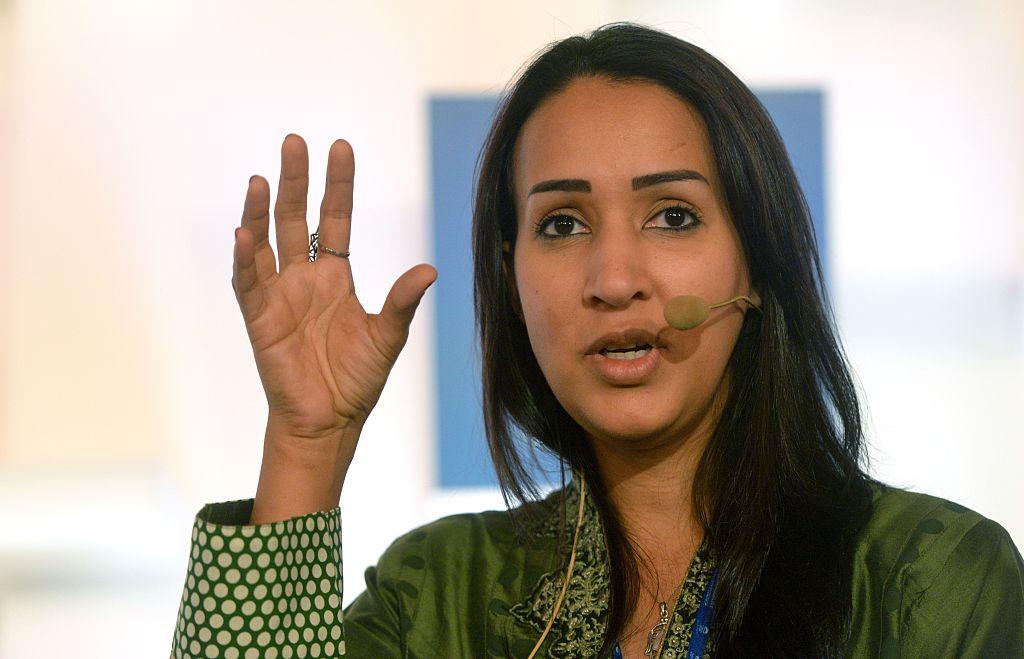Meet the Saudi Arabian woman fighting for women's right to drive

Your support helps us to tell the story
From reproductive rights to climate change to Big Tech, The Independent is on the ground when the story is developing. Whether it's investigating the financials of Elon Musk's pro-Trump PAC or producing our latest documentary, 'The A Word', which shines a light on the American women fighting for reproductive rights, we know how important it is to parse out the facts from the messaging.
At such a critical moment in US history, we need reporters on the ground. Your donation allows us to keep sending journalists to speak to both sides of the story.
The Independent is trusted by Americans across the entire political spectrum. And unlike many other quality news outlets, we choose not to lock Americans out of our reporting and analysis with paywalls. We believe quality journalism should be available to everyone, paid for by those who can afford it.
Your support makes all the difference.In Saudi Arabia, women are forbidden to drive - it damages our ovaries, apparently.
But one woman is fighting to change that, and that woman is 38-year-old Manal al-Sharif.
One evening six years ago, al-Sharif was on her way home from a doctor's appointment and was struggling to find a taxi. Men in cars kept driving past, jeering at, harassing and following her - she was terrified.
Despite having a driving licence and owning a car, she wasn’t allowed to drive due to Saudi law (she’d bought the car when she was married and could afford a driver).
“Why do I have to be humiliated?” she said to The Times. “Why can’t I drive, when I have a car and a licence? Why do I have to ask colleagues to give me a ride, or my brother, or look for a driver to drive my own car?”
In 2011, al-Sharif made history by filming a video of her driving and posting it on YouTube - it racked up over 700,000 views in just one day.
As a result, she spent a week in a prison riddled with cockroaches for the offence of “driving while female.”
Al-Sharif’s family were affected too - her brother and his family were forced to leave the country because they were being harassed so much.
It was when Al-Sharif went to the US for three months for work that she realised just how differently women were being treated. She stopped wearing her hijab and only wore it at work once back in Saudi Arabia.
Saudi women face many forms of oppression, but it’s driving that al-Sharif feels most strongly about: “I believe that when women drive in my country, that will liberate them,” she said. “We don’t have pedestrianised cities, there’s no proper public transportation. Driving is the key.
“It means that women are independent, they can leave the house, they don’t have to wait for a male guardian. Guardianship is the source of all evil when it comes to binding women.
“I’m 38 years old, I have two sons, I pay my own bills, but legally I’m a minor. I can’t do anything. I have to go to my father to get my passport. It’s outrageous. Once women can drive, all this evil will fall.”
Al-Sharif is anti-veil too: “I was brought up to follow the rules and listen to the man,” she said. “They said that covering our faces was to please God, but if you cover a woman’s face then she becomes invisible. She loses her identity.
“It’s got nothing to do with being devout, it’s about controlling women’s bodies. It’s about men being seen to be in charge. When a man asks his wife to cover her face, it says, ‘You belong to me.’”
She has now written a book, Daring To Drive, in which she writes: “I’m proud of my face. I will not cover it. If it bothers you, don’t look. If you are seduced by merely looking at it, that is your problem. You cannot punish me because you cannot control yourself.”
Despite the fact that many of al-Sharif’s peers - both male and female - warned her not to write the book, the majority of millennials are on her side: “They talk the same as me. Finally I don’t feel like I’m ostracised. How long do we have to shush each other?”
She believes Western governments need to do more to help, but ultimately, equality will only really be achieved if it comes from within:
“You cannot ask for your rights if you don’t believe you have rights,” she says. “Women need to believe that they deserve to be treated equally and that they deserve to be full citizens in their own country.”
Through her struggle, al-Sharif has lost her job as well as custody of her son - she was refused permission to marry a Brazilian man so the couple went to Dubai to get married. They now live in Sydney, Australia, and she sees her son, who is 12, only two or three times a year.
Al-Sharif has a second son, who is two, but he’s never met his half-brother: “I want to go back to Saudi Arabia, of course I do. I want my children to be together.
“I thought I’d get government approval for my marriage in a few months and I’d be back, but it’s now been five years. That’s being an activist in my country. Welcome to my life. Welcome to Saudi Arabia.”
Join our commenting forum
Join thought-provoking conversations, follow other Independent readers and see their replies
Comments